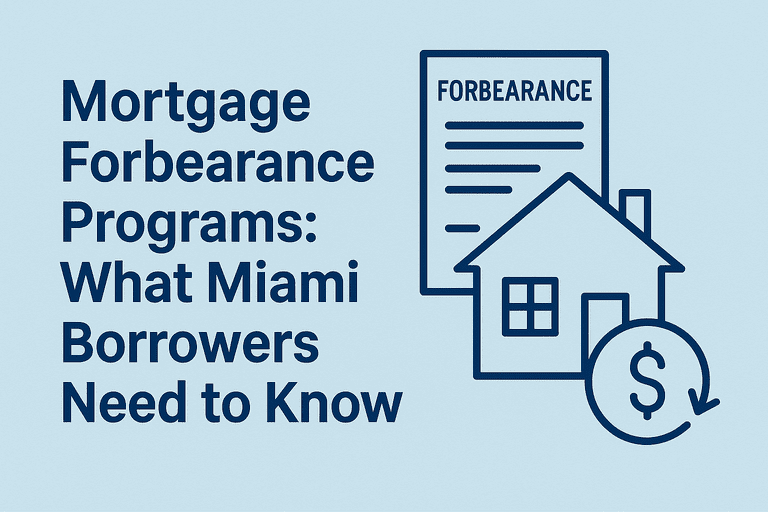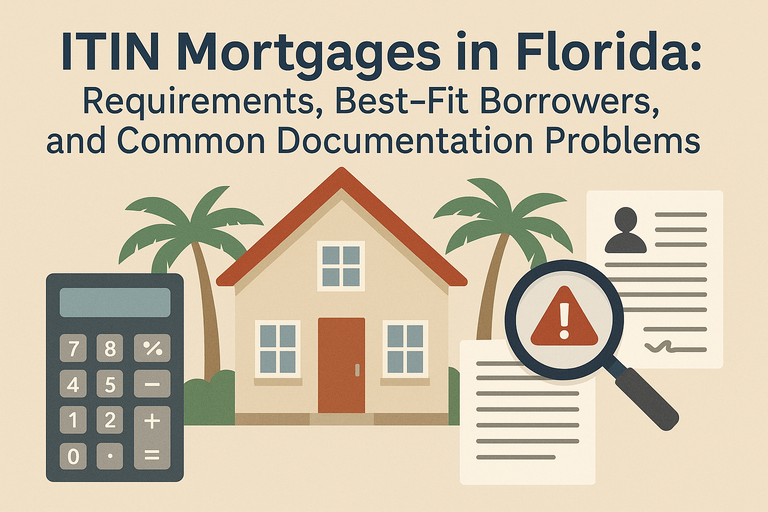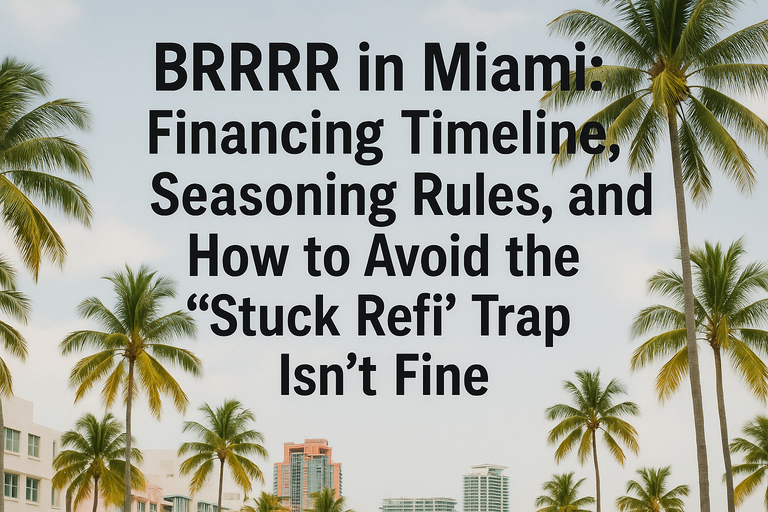Introduction: Mortgage Forbearance Programs in Miami
Financial hardships can happen unexpectedly—whether due to job loss, medical expenses, or natural disasters like hurricanes. For Miami homeowners struggling to keep up with mortgage payments, mortgage forbearance programs can provide temporary relief. These programs allow borrowers to pause or reduce payments without facing foreclosure, giving them valuable breathing room during difficult times.
Understanding how mortgage forbearance works, who qualifies, and what repayment options exist is crucial for Miami borrowers looking to protect their homes and financial future.
What is Mortgage Forbearance?
A mortgage forbearance program is an agreement between a borrower and a lender that allows temporary suspension or reduction of monthly mortgage payments. Unlike loan forgiveness, forbearance does not erase debt—it simply postpones it.
Key Features of Forbearance Programs
-
Temporary Relief – Typically lasting 3 to 12 months.
-
No Negative Credit Reporting (if compliant) – When done under federal guidelines.
-
Repayment Required – Deferred payments must be repaid through structured options.
Why Mortgage Forbearance Matters for Miami Borrowers
Miami’s economy relies heavily on industries like hospitality, tourism, and construction, which are vulnerable to downturns and disruptions. Natural disasters such as hurricanes can also put sudden financial strain on homeowners. Mortgage forbearance provides:
-
Time to Recover Financially – Avoid foreclosure while regaining stability.
-
Protection for Credit Scores – Prevents delinquency reports if handled properly.
-
Peace of Mind – Homeowners know they won’t immediately lose their property during hardship.
Types of Mortgage Forbearance Programs Available
1. Federal Forbearance Programs
-
FHA, VA, USDA, and Fannie Mae/Freddie Mac Loans – Eligible borrowers may apply for COVID-era or disaster-related forbearance programs.
-
Disaster Relief Forbearance – Available after hurricanes or FEMA-declared disasters in Florida.
2. Lender-Specific Programs
Many private lenders in Miami also offer forbearance options. Terms vary, but most require direct borrower-lender communication to set agreements.
3. State and Local Assistance
Florida housing agencies occasionally provide temporary relief programs during widespread crises (e.g., hurricane recovery assistance).
Eligibility for Mortgage Forbearance in Florida
To qualify for forbearance, Miami borrowers usually must:
-
Prove financial hardship (loss of income, medical bills, disaster damage).
-
Have an eligible loan (federal or private lender programs differ).
-
Submit a forbearance request with documentation before falling into foreclosure proceedings.
Repayment Options After Forbearance
One of the most important considerations for Miami borrowers is how postponed payments will be handled once the forbearance period ends. Common repayment methods include:
-
Lump-Sum Payment – Paying back all missed payments at once (rarely required by federal programs).
-
Repayment Plan – Spreading missed payments over several months.
-
Loan Modification – Adjusting loan terms, such as interest rate or loan length, to make payments more manageable.
-
Payment Deferral – Adding missed payments to the end of the mortgage term.
Borrowers should always confirm repayment terms in writing before agreeing to forbearance.
How Mortgage Forbearance Affects Credit
-
Properly Managed Forbearance – When approved, it does not count as late or missed payments.
-
Unreported or Late Requests – If borrowers stop paying without approval, their credit may be damaged.
-
Post-Forbearance Options – Choosing the right repayment method helps protect long-term financial health.
Common Mistakes Miami Borrowers Should Avoid
-
Ignoring Communication – Failing to contact the lender before missing payments.
-
Assuming Debt Forgiveness – Forbearance delays payments but does not erase them.
-
Not Understanding Repayment Terms – Misunderstanding can lead to financial shocks once the period ends.
-
Waiting Too Long – Applying early ensures access to more options.
Tips for Miami Borrowers Considering Mortgage Forbearance
-
Assess Finances Honestly – Only request forbearance if truly needed.
-
Explore Alternatives – Refinancing or loan modification may be better for long-term stability.
-
Work with a Local Expert – My Miami Mortgage Broker can help review loan types, forbearance terms, and refinancing opportunities.
-
Document Everything – Keep written proof of lender agreements.
FAQs About Mortgage Forbearance in Miami
Q: How long can a mortgage forbearance last?
Most last 3–12 months, though extensions may be available for special cases.
Q: Will I owe interest during forbearance?
Yes, most programs continue to accrue interest unless otherwise stated.
Q: Can I refinance after forbearance?
Yes, once you’ve resumed payments and met lender requirements.
Q: Is mortgage forbearance the same as foreclosure protection?
Not exactly—while it prevents foreclosure during the relief period, missed payments must still be repaid.
Conclusion: Navigating Mortgage Forbearance in Miami
For Miami homeowners facing hardship, mortgage forbearance programs offer critical temporary relief. However, borrowers must fully understand eligibility, repayment structures, and long-term financial implications before applying.
By working closely with lenders and consulting trusted professionals like My Miami Mortgage Broker, borrowers can make informed decisions that protect their homes and financial future while weathering difficult times.






